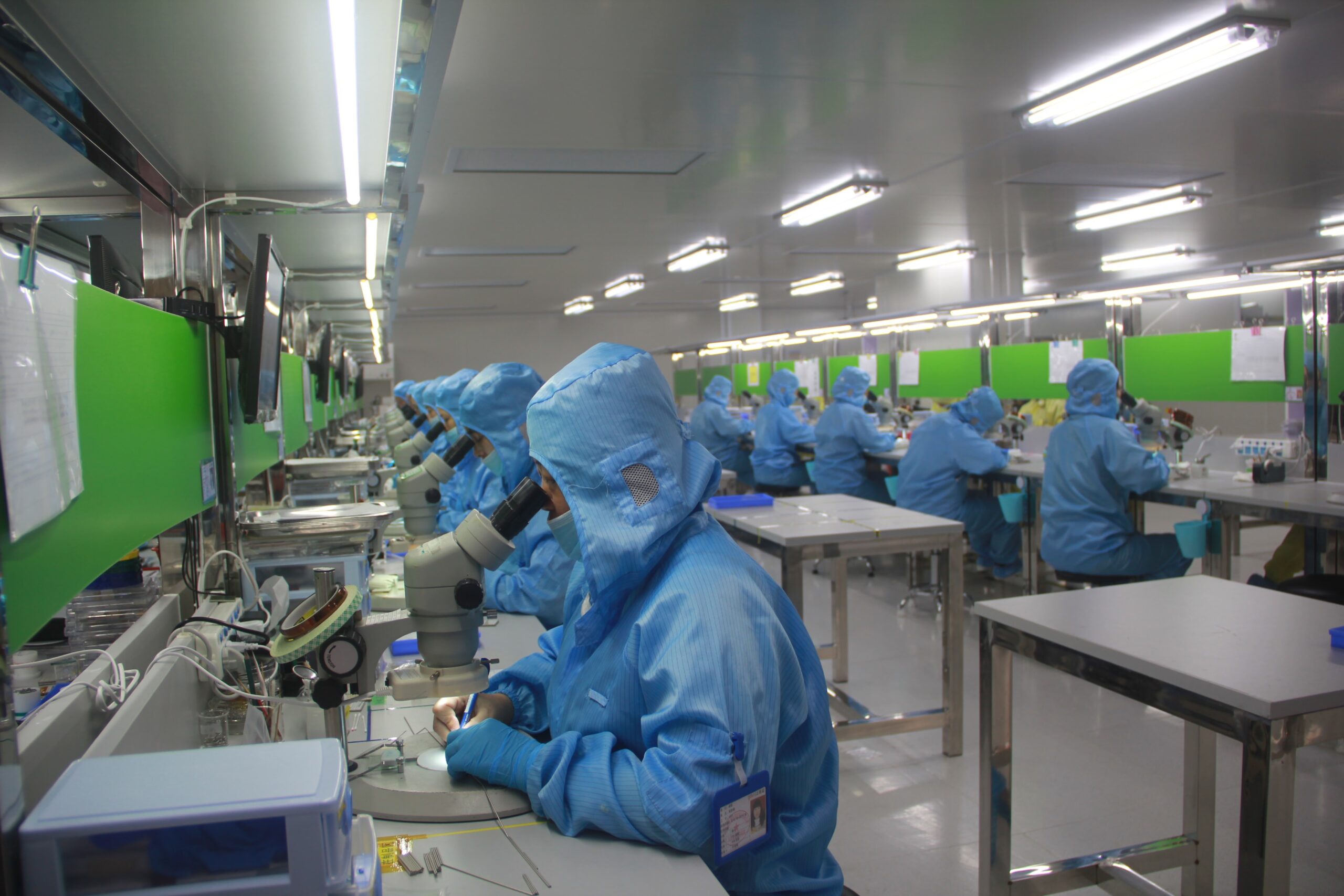AI hardware: US chipmakers may not build factories in China for ten years

Publicly funded U.S. chipmakers will not be allowed to build advanced technology factories in China for ten years.
Back in 2017, China published the AI strategy "New Generation Artificial Intelligence Development" (AIDP). Artificial intelligence contributes to competitiveness and national security, the strategy states. Analyst Gregory C. Allen of the American think tank "Center for a New American Security" assumes that China wants to use AI to catch up economically and militarily in global competition.
The U.S. is also investing billions in artificial intelligence for business and the military. For some protagonists, like Nicolas Chaillan, ex-Pentagon software chief, that's not enough. He resigned in October 2021 because, in his view, the U.S. had already lost the race.
In fact, China is catching up in publishing scientific papers, developing large AI models such as GLM-130B or PanGu-Coder, and filing patents. In addition, China may have advantages due to its state-dominated data policy.
U.S. President Joe Biden targets AI infrastructure.
The basis of current AI advances is the widespread availability of AI infrastructure, the expansion of which is being pushed worldwide. The U.S. wants to reduce its dependence on China and other countries - the U.S. currently produces only 12 percent of the world's semiconductors, compared with 37 percent in 1990.
The U.S. Congress passed the 50 billion U.S. dollar CHIPS Act in July 2022, which is intended to strengthen the production and development of semiconductors as well as national chip supply chains. In addition, there are to be tax breaks for chip manufacturers.
In recent years, however, it has become clear that the U.S. government is not limiting itself to investments alone: It wants to reduce China's access to advanced technologies developed in the West.
Already under U.S. President Donald Trump, the U.S. put pressure on the Dutch technology company ASML to prevent the sale of advanced manufacturing equipment for the production of chips to China.
Then, in early September, the Biden administration banned Nvidia from selling its A100 and H100 AI chips in China. Nvidia is the largest manufacturer of AI hardware, and its A100 series chips are used worldwide for AI model training and inference. Chinese companies and government institutions such as universities also rely on A100 systems.
According to Nvidia, U.S. officials justified the order by citing the risk that Nvidia products could be used for military purposes. AMD is also banned from selling AI hardware to China.
CHIPS Act bans the construction of new factories in China.
Now the guidelines for the CHIPS Act have been released, revealing that the cash injection is not intended to come at the expense of national security: "Companies who receive CHIP funds can’t build leading-edge or advanced technology facilities in China for a period of 10 years," U.S. Commerce Secretary Gina Raimondo said in explaining the CHIPS and Science Act.
The decision, she said, is part of a set of guidelines to ensure that companies receiving CHIPS money do not jeopardize national security. The money should not be used to invest in China, she said, and companies should not be allowed to send new technologies to China.
"Companies who receive the money can only expand their mature node factories in China to serve the Chinese market," Raimondo said.
The bet on artificial intelligence
The ban on sales of Nvidia and AMD hardware, as well as the terms of the CHIPS Act, clearly show how central the U.S. government views the role of hardware in the AI race with China.
It also shows that the U.S. considers products from Nvidia and other U.S. manufacturers to be more advanced than Chinese hardware - not unjustifiably, given that Chinese manufacturers are in a race to catch up with the established giants.
The first GPU "Made in China" by the Chinese manufacturer Moore Threads achieves a computing power of 6 TFLOPS and was manufactured by the Chinese chip manufacturer SMIC in a 12 nm process. The significantly more powerful 7 nm Biren BR100 from the Chinese manufacturer Birentech was manufactured at the Taiwanese chip giant TSMC. Recently, SMIC announced the release of its own 7 nm process nodes. TSMC has already been manufacturing in the 7-nm process since 2018.
The active intervention of the U.S. in the availability of AI hardware can also be seen as another sign that both nations see the development of artificial intelligence as far from complete. The bet on further AI breakthroughs is on.
AI News Without the Hype – Curated by Humans
As a THE DECODER subscriber, you get ad-free reading, our weekly AI newsletter, the exclusive "AI Radar" Frontier Report 6× per year, access to comments, and our complete archive.
Subscribe nowAI news without the hype
Curated by humans.
- Over 20 percent launch discount.
- Read without distractions – no Google ads.
- Access to comments and community discussions.
- Weekly AI newsletter.
- 6 times a year: “AI Radar” – deep dives on key AI topics.
- Up to 25 % off on KI Pro online events.
- Access to our full ten-year archive.
- Get the latest AI news from The Decoder.